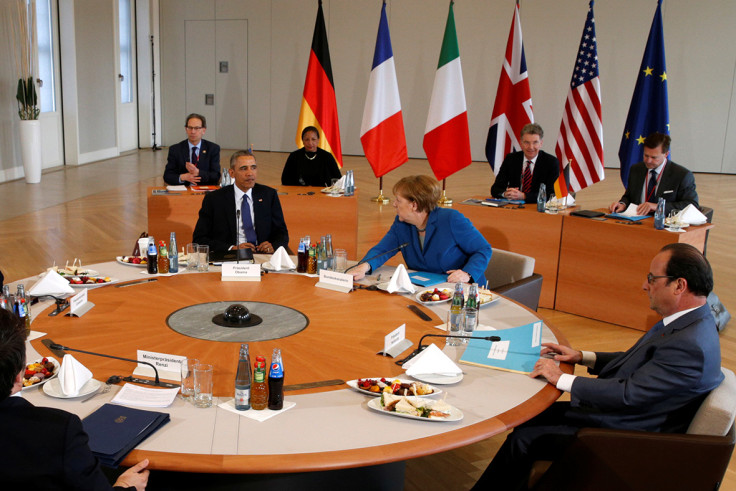EU referendum: We Germans would be devastated if the UK left the European Union
Is it a coincidence that the emergence of the EU has coincided with the longest period of peace in Europe's history?

As the UK votes on whether to Leave or Remain within the European Union, Germany finds itself in a bind. Berlin would dearly love to fully articulate and say out loud what it really thinks and feels, but understands that voicing a desire for UK to remain would backfire with British voters.
It is frustrating for us that the impact of Thursday's vote will reverberate throughout Europe, and we will have absolutely no say in the matter. That of course is the UK electorate's absolute right. Chancellor Angela Merkel's government is acutely aware of this dilemma. It knows its position on wanting the UK to stay is backed by the majority of Germans like it rarely has been on any other topic in the past. A poll by ARD-DeutschlandTrend earlier this month showed that nearly 80% of respondents want Britain to remain in the EU. But no matter what German ministers or the chancellor herself really want to say, they realise their words could be used against them.
Wolfgang Schäuble, the normally forthright German finance minister, is regarded as a hardliner (just ask the Greeks). He summarised Germany's dilemma perfectly in one sad sentence. Asked in London in March what Germany would do if Britain left the EU, Schäuble responded: 'We would cry."
Chancellor Merkel has taken a public vow of silence where Brexit is concerned. Little more is said than the repeated affirmation that, of course, Berlin believes Britain should remain in the EU. This is always accompanied by the assertion that it's up to the British people to decide. When there are no microphones under her nose though, the chancellor takes a more passionate stance, stating that a Brexit would be "terrible."
From our perspective in Germany, it seems that many Brexit supporters accept that leaving the EU would be a risky move in terms of the economy. We have significant economic ties with each other, exporting back and forth goods and services worth billions of pounds a year.
So the Brexit promoters have been focusing their arguments on emotions, some of them reverting to nationalism echoed by populist parties not only in Germany, but all over Europe.
The political consequences of a Brexit could be really awful, even beyond the UK's borders. The so-called 'EasyJet generation,' forgetful of history, can't undo the fact that the Europe that evolved from the European Coal and Steel Community, the European Economic Community and the European Community always was, and is, a peace project.
Is it a coincidence that the emergence of the EU has coincided with the longest period of peace in Europe's history?
In the end, it's not about coal, but about cannons. Is it a coincidence that the emergence of the EU has coincided with the longest period of peace in Europe's history? The difficulties this continent faces can only be solved if all of Europe's large states participate in all the major everyday issues – and the many minor details too.
Without London, Germany would find itself in a skewed position. The UK brings significant military might to the EU table. Berlin doesn't of course – but we would be pushed into assuming a diplomatic and economic dominance we do not want, and frankly can't cope with. The German finance minister knows what that is like (again, ask the Greeks): People will have trouble believing that Germany is acting in Europe's interests. We need other strong nations at the EU top table.
Germany would be pushed into assuming a diplomatic and economic dominance we do not want and frankly can't cope with
In the first half of the last century, European disagreements resulted in war. During the second half – thanks to the treaties of Rome, Maastricht and Lisbon – Europe flourished, bringing about a sustained period of peace. Today, it seems a given. But we shouldn't take peace for granted.
Military solutions appear to be socially acceptable again, all we need to do is look to Europe's easternmost fringes. Enemy warships might patrol the English Channel again, not in three or five years, but maybe 30 years from now.
Just because back in 2016, quite needlessly, the UK gave the wrong answer to a loaded question. And at this point, frustratingly, no-one in the German government can articulate these fears out loud.
Dagmar Engel is head of Deutsche Welle's Berlin studio. Deutsche Welle is Germany's international broadcaster. It employs around 3,000 people from 60 countries. DW broadcasts television 24/7 in English, German, Spanish and Arabic, with radio and online content available in 30 different languages.
© Copyright IBTimes 2025. All rights reserved.






















